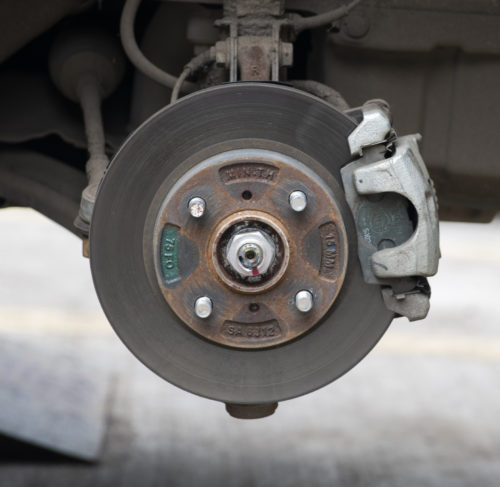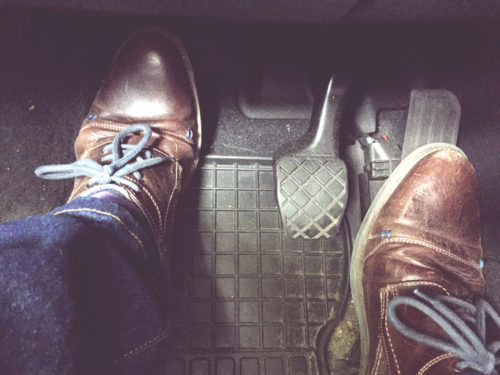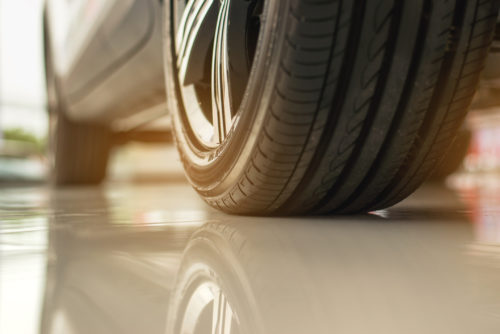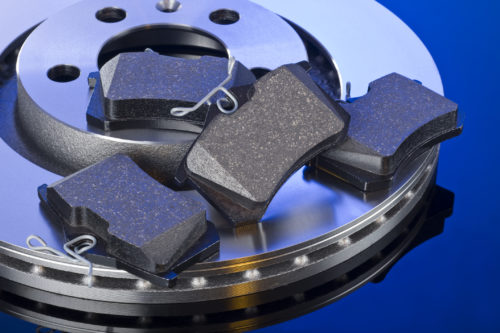Signs That Your Car Brakes Need Replacement
All journeys begin from a standstill, and they end once your vehicle comes to a stop. Even during your journey, the one component (above all else) that will keep you safe is your brakes (and we are talking about your journey in a car here!).
Here are what you should know about your brakes – Signs of worn-out brakes and how to extend their life:
How Do Brakes Work?

Before we jump in, let’s take a quick look at how brakes work to help you understand them better. Brakes convert the car’s kinetic energy (its momentum) into heat energy via friction, thereby slowing the car down. Modern brakes are a marvel of engineering. Through the magic of hydraulics, they allow you to stop a car that weighs a ton or more with very little force at the pedal. Then there are Anti-lock Braking System (ABS) with Electronic Brake Force Distribution (EBD), present across all Ford cars, which help you stop safely and in a shorter distance in all conditions – including the most challenging ones when fully loaded.
Now that we are aware of how brakes work let us look at the signs that say they need attention:
Car Pulls To One Side When Stopping
![]()

If this happens consistently, first, check your tyre pressures. If this is okay, check your wheel alignment. If that is fine as well, your brakes should be the next target on your troubleshooting checklist. A worn brake will not slow a wheel down as effectively as the other wheels, meaning your car will pull to one side when you hit the brakes.
Brake Pedal Feels Different (Softer & Sinks To The Floor)

Brake fluid is an incompressible fluid, which is how it manages to transfer pressure from the brake pedal to the brake pads or shoes. It is also ‘hygroscopic’, meaning that it attracts moisture from the air. When it absorbs enough moisture, it loses its incompressibility, which gives you the ‘soft’ or ‘spongy’ brake pedal feeling. When this happens, it is time to replace the brake fluid and take a careful look at your brake pads and shoes for wear.
Steering Wheel Shakes When Stopping

A steering wheel that shakes when you hit the brakes is a sign of a front brake disc that is out of balance. This requires an immediate visit to an authorised Ford service centre for your safety because if the disc is not level, the brake pad isn’t fully in contact with it. In such a situation, the brake won’t be performing optimally and will have reduced braking power.
Entire Vehicle Shakes When Stopping

If your brake pads and shoes are worn out, it could lead to the car shimmying or shaking every time you press the brake pedal. Should this happen, you need to have the braking system checked immediately at an authorised Ford service centre.
Car Squeals When Stopping

Brake pads have a ‘wear indicator’ in them that make a high-pitched squealing noise every time you apply the brakes if it is time for them to be replaced. This noise is engineered into the brake pads on purpose so that you know it is time for a check-up and maybe a replacement.
How To Extend The Life Of Your Brakes And Avoid Brake Failure

Now that you’ve learned about the signs your brakes give you when they need attention, let us look at ways you can extend the life of your brakes and avoid failure:
Drive Smoother: This might sound obvious, but the harder you brake, the quicker your brakes will wear. Be too harsh with your brakes, and you risk warping your brake discs with the excess heat as well. Oh, and all that hard driving will also hit your fuel efficiency. Therefore, remember to look farther ahead and keep a safe distance from the vehicle in front, so you don’t need to keep hitting the brakes.
Use Engine Braking: The engine also has its heat exchanging system in the form of a cooling system, so it can help slow the car down as well. Remember to downshift smoothly – you need to be kind to your clutch and transmission as well!
Don’t Accelerate While Braking: If you have an automatic, be careful to use only one pedal at a time, else you’ll wear out your braking and transmission systems unnecessarily. Leave the racing techniques for the racetrack!
Don’t Overload Your Vehicle: Every vehicle’s components are designed with a particular maximum load in mind, plus a safety margin for extreme conditions. If you overload your vehicle, you will stress out several components, including your brakes. The more mass your brakes have to stop, the quicker they will overheat, and you’ll find your overloaded vehicle showing a much-reduced braking capacity. In the long run, your brakes, suspension, and tyres will all suffer unduly due to vehicle overloading.
You can also refer to Ford’s New User’s Guide for handy info should you have any questions during daily maintenance and vehicle usage. The aim is to assist you to operate your vehicle with confidence.
Remember to get your brakes checked and serviced only at Ford authorised service centres; not only are Ford genuine spares and service affordable, but they also come with a warranty, which means they are designed to the highest quality standards. After all, nothing is more important to us than our customers’ safety.
You don’t have to believe us blindly; independent surveys such as Autocar’s Annual Vehicle Maintenance Study have shown for three years in a row that Ford vehicles are the most affordable to maintain in their respective segments. Check out our Ford Service Price Promise where we put up the maintenance costs of our vehicles on our website so you are aware of the costs beforehand. There is complete transparency in the process.
We at Ford value our customers and will be right by you on your journey – from the time you start driving to the time you stop.
Subscribe to our newsletter
Subscribe to our newsletter to stay upto date with latest news, offers and much more



